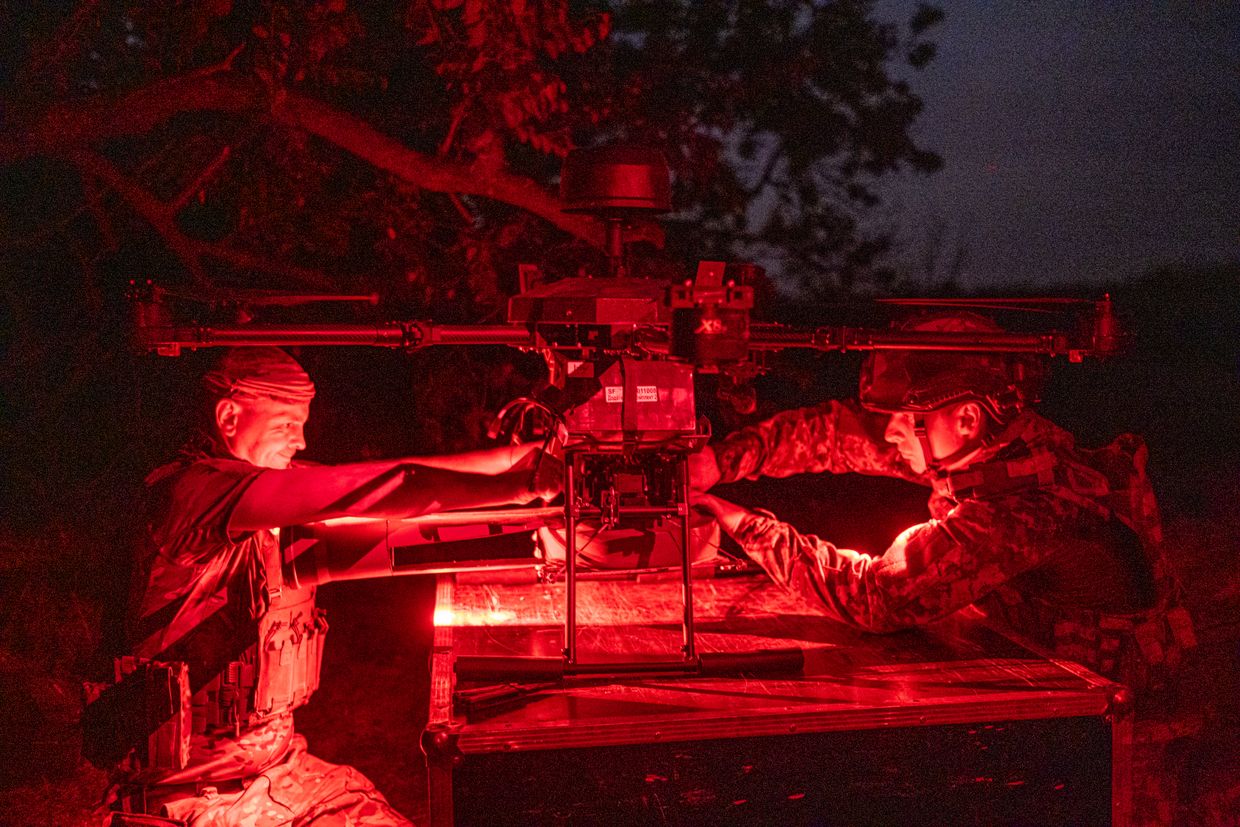Multiple people told me I was being “antagonistic” when I spoke to the Hexbear people on the topic of Russia and Ukraine. I think I’m okay with that.
As I understand it, his logic here is:
- Iraq War: That’s their country that is wrong, go home
- Israeli occupation: That’s their country that is wrong, go home
- English oppression of Ireland: That’s their country that is wrong, go home
- Ukraine war: Well you see it’s complicated, Ukraine is not innocent and anyway Russia was provoked
(Actually, if I’m being serious, I think the point was to tear down the very notion that matters of geopolitics can ever involve “right” or “wrong” and erode the reader’s sense of justice, depress them, make them disengage, and thus provide a narrative safe space for all the killing, torture, and destruction that Russia wants to do for as long as it wants to do it. But, if you take it at face value, that up there is what he’s saying.)
Yeah. I know 100% what you mean. It is hard to maintain good humor. If it helps:
- It's fun to deal with the ones that are doing a really shitty job. I was happy seeing this guy come in and instantly trip over his dick trying to say "all NATO's fault" in this obvious and incompetent manner. I don't think it actually needed debunking really, but maybe a larger number of people laughing at him in the comments will result in a bad performance review or something along those lines.
- Don't feel like you need to deal point-by-point with their horseshit. You don't need to be evasive or deceptive or anything, but they don't deserve the courtesy of a detailed and factual counterargument. If you answer one argument, they'll just pretend you didn't and raise another. You'll notice that except for the end, I basically ignored almost everything he said, because it's not like it really needs debunking. I just took the chance to talk about some stuff that counterbalanced their narrative and I felt like talking about.
- Don't feel like you need to be polite. I've actually seen some writings that dealing straightforward-factually with this kind of stuff actually is just not effective and more or less gives them a platform, and I can completely believe it. Don't be unhinged or hostile, but also, don't pretend you respect them. The social contract goes both ways, and honoring it with someone who's breaking it is just being a chump and sending the wrong message to people reading.
- If they do decide they want to debate, I love to just ask straight questions. I recently got banned again from Hexbear because of some participation that included:
- Hey, quick question: Why did Russia swear before the invasion that they were not going to invade Ukraine, and any reports of that were just Western lies?
- Why did they change the goal from “denazification and demilitarization” to “we need to keep all this extra land on the border because it’s ours now and we’ll keep killing people until someone gives up and lets us have it”?
- Is Russia’s current set of actions more likely to produce the result: More motivation to join NATO by neighboring countries, or less motivation?
There were a couple of other ones, sort of detail questions related to what we were talking about. They really get irritable when you just ask straight questions that their framework doesn't like the answers to. Zero of my questions got answered even when I pointed out that maybe they had overlooked the question or meant to respond to someone else and politely asked it again, and they accused me of "JAQing off" and said it was a horrible thing to do to ask them these things. (Killing people apparently is okay.)
Be sarcastic. Be insulting. After all, they are wrong, and they're killing people. I'm not trying to be embittered about it or anything (and sometimes I am not successful in that) but it's okay not to be nice to them.
I think this falls into the "never interrupt your enemy while they are making a mistake" category.
If they want to fill our channels with random malicious nonsense in service of the idea of killing a bunch of innocent people and taking away their home, and they want to do such a bad job of it that it's transparently obvious horseshit that everyone just laughs at or dunks on... I say welcome. Come on in. Tell us all about your theories, good sir, I can't wait to hear.
I don't think anyone is being fooled, based on the speed and unanimity of the downvotes.
Well… it’s filled with NATO arms and munitions
Fun fact: Do you know what the ratio is of money Russia's spent on the war, as compared with Ukraine plus allies?
It's about 2 to 1. When you factor in PPP, that means in real material terms it is somewhere in the neighborhood of ten to one. Russia has mobilized basically the entirety of its economy to try to win this thing, about half their federal budget every year now. While Ukraine is surviving on occasional drips of Western aid whenever their governments can get roused from their campaign-contribution-induced torpor of corruption to be reminded that there are actual real things happening in the world.
Basically, it is a war of Russian money, Western technology / intelligence support, and Ukrainian blood. Also Ukrainian ingenuity. Necessity being the mother of invention, Ukraine is probably at the forefront of the world at this point in being able to fight a modern war (meaning a drone war) and produce and strategize based on what's needed for one (meaning drones).
There's also the significant factor that without Western restrictions being put on Ukraine, stopping them from fighting back in several meaningful ways even to this day, they would have mopped the floor with Russia and been bombing strategic centers deep over the border for years now. Their invasion of Kursk and Belgorod isn't even the main thing, it is being able to blow up strategic centers inside Russia's borders.
Having fought a country one-twentieth their size, outspending them ten to one, Russia has managed to get stuck on the border for longer than the US's involvement in World War 2 with Ukraine fighting with one hand tied behind its back.
Think on that for a minute. It is a wonder. There are reasons, of course, mostly having to do with the inherent unfeasibility of a gangster-capitalist state to operate with any significant level of success against actual real challenges. We're about to become very familiar with that, in the US, I am sad to say.
But not once from the US invading Iraq/Afghanistan. Or England’s occupation of Ireland. Or the Israeli presence in Palestine.
Yeah I never heard any of those things. It's a wonder. You can look the length and breadth of American political thought, and never find even a single person who thought the Iraq War or the Israeli occupation was anything bad. You would think there would be some kind of dissenting voices somewhere to be found. Hell, you can't even talk about such things on Lemmy, you'll be banned for it.
I mean that is one among a few different things that's wrong with his mental model lol
I thought that guy was talking about organized shilling for corporate interests? Not geopolitical ones? I mean I'm sure the tactics are the same (actually I'm sure they are orders of magnitude more sophisticated now when done by state actors), just wanted to correct the record about that particular person.
Yeah. Human greed and corruption destroys the planet. It infests capitalism just as it does communism or anarchism or whatever else.
Not to say that capitalism doesn't inflame and amplify some of its failings in specific ways that we urgently need to do something about or else be destroyed... but again, so does everything else as far as I can tell. Getting rid of capitalism won't do a damn thing to solve the actual problem, I don't think.
Hey that's a good one.




What are you on about